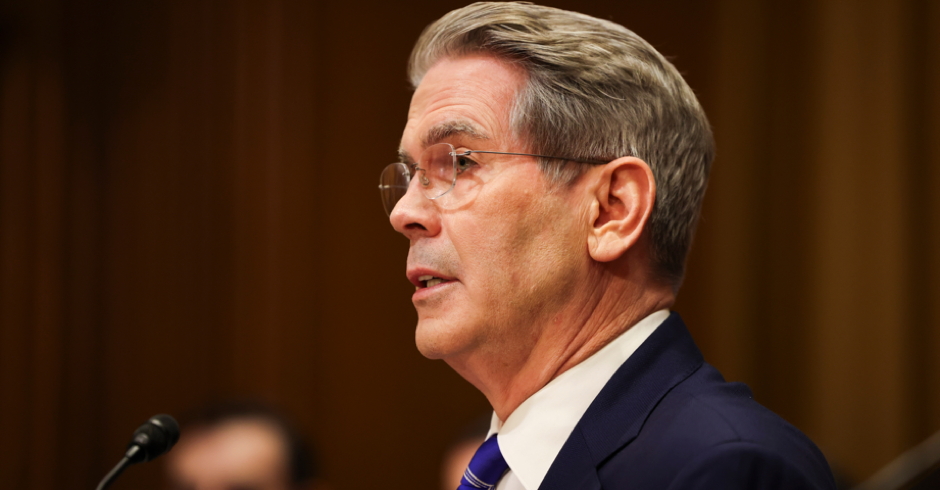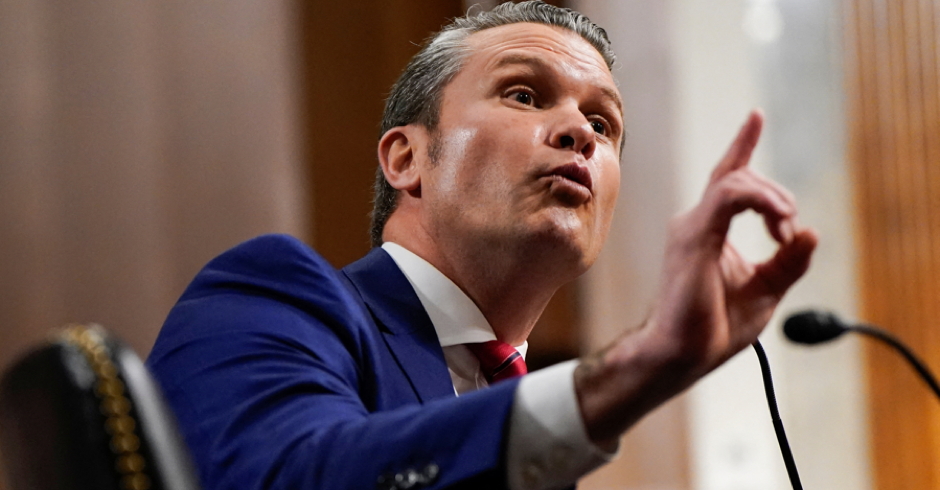One of America’s Least Gay-Friendly Universities Drops Its License to Discriminate (But Why?)
Fear That Being Known as a School That Practices Discrimination Would Harm Its Ambitious Business Plan May Be the Motivator
Earlier this month it was revealed that Pepperdine University had notified the U.S. Department of Education in January that it wanted to withdraw the request it made in 1976 to be exempt from certain provisions of Title IX of the Education Amendments of 1972, the law that bans sex discrimination at educational institutions that receive federal funds. The 1976 request was subsequently granted and Pepperdine received a license to discriminate on the basis of sex, gender identity, and sexual orientation.
In his letter to the Department of Education’s Office of Civil Rights on January 27, 2016, Pepperdine’s President Andrew K. Belton pointedly remarked that “The University would appreciate OCR from removing it from any list of universities holding a Title IX exemption or, alternatively, including this withdrawal in any public disclosure of its Title IX exemption materials.â€
Some commentators have hailed Pepperdine’s request as evidence of how attitudes toward discrimination against women and LGBT students have changed even at conservative religious institutions and have applauded the university’s evolution on these issues.
But the situation may be more complex. To understand Pepperdine’s request, it must be placed in several contexts.
The university’s request is undoubtedly related to the Human Rights Campaign’s successful petition to the Department of Education to make public the names of the colleges and universities that have taken advantage of the religious exemption process. It may also be related to a lawsuit filed against it in federal court by two lesbian athletes. In addition, a proposed California law relating to colleges and universities that have received Title IX religious exemptions was also probably a factor in the decision.
Pepperdine, which has a long and fraught relationship with the LGBT community, and appeared on a Princeton Review list of most LGBT unfriendly schools, has probably made the decision to give up its license to discriminate less as a result of a new embrace of equal rights than out of a fear that being known as a university that practices discrimination will harm its ambitious business plan.
HRC Report
In December 2015, the Human Rights Campaign issued a comprehensive report called “Hidden Discrimination: Title IX Religious Exemptions Putting LGBT Students at Risk.†The report, authored by Sarah Warbelow and Remmington Gregg, highlighted 56 institutions, including Pepperdine, that have utilized a little-known provision in the law that allows educational institutions controlled by a religious organization to request exemption from full compliance with the law if doing so “would conflict with specific tenets of the religion.â€
The report requested that the Department of Education require schools to publish comprehensive information about the scope of exemption they have received, the characteristics or behaviors to which the exemption applies, and the ways in which Title IX still protects students; and for the Department of Education to report regularly which institutions have requested or have been granted religious exemptions covering what behaviors and characteristics.
Noting that LGBT students face alarming rates of discrimination and harassment, the HRC called for a greater level of transparency on the part of the Department of Education and on the part of institutions that discriminate.
On April 29, 2016, the Department of Education complied in part with HRC’s request by making available on its website a database of all the requests for waivers received by the Department. The database, which is searchable in various ways, including by state, regulation, date, and name of institution, makes available a treasure trove of information.
As a result of this action by the Department of Education, it is now possible to discover easily what institutions have sought a license to discriminate on the basis of several characteristics, including gender identity and sexual orientation. Previously, such information could be found only by filing a request under the Freedom of Information Act for each suspected university.
Pepperdine University
Pepperdine University was established in 1937 as a Christian liberal arts college in Los Angeles. It has since grown into a university best known for its spectacularly beautiful campus overlooking the Pacific Ocean in Malibu and as a hotbed of conservatism. In addition to its main campus in Malibu, it has other campuses in California and several study centers abroad, as well as plans to expand into Texas. It has been ranked among the least gay-friendly universities in the United States.
Pepperdine describes itself as “a Christian university committed to the highest standards of academic excellence and Christian values, where students are strengthened for lives of purpose, service, and leadership.†It is affiliated with the a capella Churches of Christ, a conglomeration of about 12,000 autonomous congregations and 1,500,000 adherents in the U.S. (and more abroad) united by a few core beliefs, which may be called loosely evangelical and fundamentalist. A majority of the university’s Board of Regents are chosen from among active members of the a capella  Churches of Christ.
Pepperdine posts several somewhat vague—and deceptive–nondiscrimination policies on its various websites. In the faculty manual for its undergraduate school, Seaver College, for example, there is this statement, “Pepperdine is an Equal Employment Opportunity Employer and does not unlawfully discriminate on the basis of any status or condition protected by applicable federal, state, or local law.â€
A reasonable person might read this statement as meaning that the university does not discriminate on the basis of sexual orientation or gender identity since those characteristics are protected by state law and by Title IX. However, when the statement was written the university had a license to discriminate on these grounds from the Department of Education, which in turn was honored by the state of California. Its failure to reveal its exemption in the policy itself amounts to deliberate deception.
The law school, which for several years was led by Kenneth Starr–who represented the supporters of Proposition 8 in the litigation before the California Supreme Court after Prop 8 was passed and not only argued (successfully) that Proposition 8 was constitutional but also sought (unsuccessfully) to invalidate the 18,000 same-sex marriages performed in the state before Proposition 8 was enacted–has a nondiscrimination policy that is even more disingenuous.
No doubt because the American Bar Association requires that accredited law schools not discriminate on the basis of sexual orientation, the Pepperdine Law School says it does not so discriminate. However, a statement in its nondiscrimination policy, which is both weird and condescending, practically begs students not to do anything gay:
“The School of Law does not discriminate against any person on the basis of any sexual orientation that such person may have. However, sexual conduct outside of marriage is inconsistent with the school’s religious traditions and values. Therefore, as a matter of moral and faith witness, the faculty, staff, and students of the School of Law are expected to avoid such conduct themselves and the encouraging of it in others.â€
The statement obviously was written before Proposition 8 was overturned in 2013 since it uses the formula conservative Christians often use to pretend they are not discriminating against LGBT people by saying they are opposed to all sexual conduct “outside of marriage.†Now that same-sex couples may also marry, the real question might be whether Pepperdine expects its married gay law students and faculty to live in chastity. What the School of Law means to say is that sexual conduct outside of heterosexual marriage is inconsistent with its values.
Pepperdine’s Boone Center for the Family (named for Pat and Shirley Boone) not only does not have a nondiscrimination policy, but does not even mention same-sex marriage or LGBT families on its website, or, presumably, in its programs.
For years, Pepperdine resisted all efforts on the part of students to establish a recognized LGBT student organization. Back in 2012, when Pepperdine refused for the fourth or fifth time attempts by students to form an organization, one of them expressed anguish at the atmosphere on campus.
“The effects of silence on gay students at Pepperdine are emotionally stressful and spiritually devastating,†the student wrote. “As a gay Church of Christ junior on campus, I can personally attest that the silence harbors not only an atmosphere of ‘don’t ask, don’t tell,’ but also an atmosphere where those who hold dangerous attitudes toward homosexuality feel both comfortable and protected speaking out, through religion, against gay individuals. I’ve spoken to classes and a Bible study group at Pepperdine, and have felt the deep pain and fear expressed by gay individuals who have sought my advice afterward. Faculty is afraid of engaging the topic altogether, and when I recently asked my professor if s/he would sign the petition, s/he simply replied, ‘I’m not tenured, Dillon. I’m sorry.’â€
[In the video below from 2012, President Benton explains his decision not to recognize an LGBT student group, ReachOUT.]
However, on March 22, 2016, the administration at Pepperdine suddenly changed course and to the surprise of everyone announced that an LGBT+ club called Crossroads had received official recognition. In the wake of the approval, Pepperdine’s president said that “all of our students deserve our deep caring and support,†but stressed that Crossroads is not a political club and that its recognition was “not a political statement.â€
Pepperdine’s student newspaper’s report on the club’s recognition contained a telling detail. The club was supported by a petition signed by 50 full-time faculty members, and another 25 who withheld their names. The fact that 25 faculty members in support of the club were afraid to sign their names says a great deal about academic freedom at Pepperdine.
However, the larger question is whether Pepperdine’s rather abrupt but nevertheless welcome reversal of its stand regarding the official recognition of a LGBT student group is evidence of a change of heart or is it, rather, something else? Could it be an attempt to change the school’s image rather than manifest a change of heart?
Haley Videckis and Layana White
In December 2014, two basketball players at Pepperdine, Haley Videckis and Layana White, filed suit against the university and Coach Ryan Weisenberg. In the lawsuit, the women allege that they were harassed and discriminated against because of their sexual orientation.
In their original 24-page complaint filed in Los Angeles Superior Court, the women said that Weisenberg wanted them off the basketball team because he suspected they were dating and believed that that would cause the team to lose games. He allegedly told team members that “lesbianism was a big concern for him and for women’s basketball, . . . and would not be tolerated on the team.â€
They also allege that team staffers regularly asked them about their sexual orientation and sleeping arrangements and asked for access to their gynecology records. According to the lawsuit, the harassment was so severe as to cause White to attempt suicide.
The case was eventually refiled in federal court, where Pepperdine moved to dismiss it on the grounds (among others) that Title IX does not prohibit sexual orientation discrimination.
However, on December 15, 2015, Judge Dean D. Pregerson of the U.S. District Court for the Central District of California rejected Pepperdine’s motion to dismiss. He held that Title IX’s prohibition of “discrimination ‘on the basis of sex’ encompasses both sex–in the biological sense–as well as gender,†and that “discrimination based on gender stereotypes constitutes discrimination on the basis of sex.â€
With respect to the sexual orientation claim, Judge Pregerson found that “the line between discrimination based on gender stereotyping and discrimination based on sexual orientation is blurry, at best. . . . [and that] claims of sexual orientation discrimination are gender stereotype or sex discrimination claims.â€
Judge Pregerson concluded that Plaintiffs had established a “straightforward claim of sex discrimination under Title IX.†He also ruled that Plaintiffs “have clearly pled a plausible claim for retaliation†because they complained to coaching staff and Pepperdine’s Title IX coordinator and were ultimately “forced off the basketball team and lost their scholarships.â€
Judge Pregerson subsequently set a trial date for March 2017. I would be surprised if Pepperdine does not settle this case before the trial begins.
Surely, it is not coincidental that soon after this major ruling from a federal judge Pepperdine took steps to improve the climate for LGBT people on its campuses and attempted to reshape its reputation as a university hostile to LGBT students.
Senate Bill 1146
But there may be another reason as well.
In 2015, at the behest of Equality California, two openly gay state Senators– Ricardo Lara of Los Angeles and Mark Leno of San Francisco—filed Senate Bill 1146, a bill that if passed would require any college or university that received a religious exemption from the U.S. Department of Education and, by extension, from California’s Equity in Higher Education Act to disclose fully and prominently that it had received such an exemption. In particular, students would have to be notified at the time of application that the college or university had a license to discriminate.
The bill would also subject religious institutions–except for those whose purpose “is to prepare students to become ministers of the religion or to enter upon some other vocation of the religion‖to California’s anti-discrimination laws if they receive assistance from the state or enroll students who receive assistance from the state.
Senate Bill 1146Â is wending its way through the legislative process, having been subject to hearings and amendments in both the Senate and the House. It is likely to be passed; and though it will probably be amended in various ways, its disclosure requirements will almost certainly survive.
A coalition of religious universities have mounted a savage attack on the bill, frequently misrepresenting it and hysterically claiming that it will end faith-based education in California. The coalition includes some of the most virulently anti-gay institutions in the state. Many of these institutions especially fear the provisions that would prohibit state funding of the institutions and their students if they discriminate.
Tellingly, Pepperdine made the decision not only not to join the coalition, but to request the revocation of its license to discriminate. It is obviously more concerned about the disclosure provisions than permission to continue its pattern of discrimination.
Conclusion
Most of the institutions that receive Title IX religious exemptions or that would be affected by Senate Bill 1146 are small, insular schools. Many of them are located in the South and are supported by the Southern Baptist Convention or Pentecostal denominations or small fundamentalist denominations. Â Pepperdine, however, aspires to become a much larger and more influential university than it is. It aspires to national and international recognition, especially of its Law and Business Schools.
Pepperdine’s administration has probably reached the conclusion that in order to achieve its aspirations to become a national university, it is not in its long-term interest to be associated with the smaller and narrower schools that seek licenses to discriminate.
The publicity Pepperdine has received as a result of its annual inclusion in the ranking of anti-LGBT colleges and universities has not burnished its image. Its repeated denial of recognition of LGBT student groups only increased its reputation for intolerance. The lawsuit filed by Haley Videckis and Layana White threatens to damage that reputation even more. The HRC report also highlighted its discriminatory practices. Indeed, Pepperdine has recently suffered a public relations nightmare that threatens its goal to be taken seriously as a major university.
The university’s decision to revoke its license to discriminate was probably a hard-nosed business decision rather than a genuine change of heart. Â Nevertheless, if the decision means that there will be fewer instances of harassment of LGBT students at Pepperdine, less discrimination against faculty members and other employees, and a more welcoming posture toward all, then perhaps the motivation for the turnaround can be seen as less significant than the long overdue change itself.Â

Enjoy this piece?
… then let us make a small request. The New Civil Rights Movement depends on readers like you to meet our ongoing expenses and continue producing quality progressive journalism. Three Silicon Valley giants consume 70 percent of all online advertising dollars, so we need your help to continue doing what we do.
NCRM is independent. You won’t find mainstream media bias here. From unflinching coverage of religious extremism, to spotlighting efforts to roll back our rights, NCRM continues to speak truth to power. America needs independent voices like NCRM to be sure no one is forgotten.
Every reader contribution, whatever the amount, makes a tremendous difference. Help ensure NCRM remains independent long into the future. Support progressive journalism with a one-time contribution to NCRM, or click here to become a subscriber. Thank you. Click here to donate by check.
 |


















